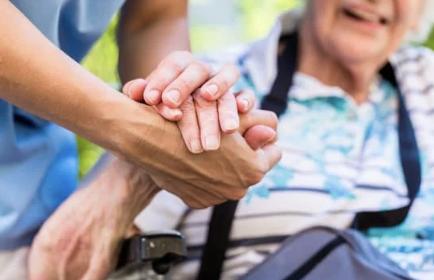Falls are a leading cause of injury and even death among older adults. As we age, our bodies unergo changes that can make us more prone to slips, trips, and falls. However, we can take several proactive steps to reduce our risk of falling and maintain our independence. This article will discuss seven valuable tips for fall prevention in old age.
Regular Physical Activity
Regular physical activity is one of the most effective ways to maintain strength and balance, two essential components of fall prevention. Exercise can help us strengthen our muscles, improve flexibility, and increase our overall mobility. Physical activities like walking, Tai Chi, or water aerobics are gentle on the joints and can be done according to our fitness level.
Medications review
Certain medications can cause dizziness, drowsiness, or imbalance, increasing the risk of falls. It’s crucial to review our medication list with our healthcare provider regularly. The common medications responsible for falls include the medicines used for controlling blood pressure and blood sugar levels.
Vision and Hearing Check-ups
Impaired vision and hearing can significantly contribute to falls. Regular eye and hearing exams can help identify and address any issues promptly. It is essential to ensure that eyeglasses or contact lenses have the correct prescription. Similarly, if we use hearing aids, we should use them consistently to maintain situational awareness.
Home Modification
Home modifications can play a crucial role in fall prevention. Install handrails in hallways and staircases, secure rugs to the floor, and remove clutter that can cause tripping. Adequate lighting is also essential, especially in high-traffic areas.
Wear Appropriate Footwear
Footwear can significantly impact our stability. Choose shoes with non-slip soles, good arch support, and a proper fit. Avoid wearing high heels, flip-flops, or shoes with worn-out treads, as they can increase the risk of slipping and falling.
Hydration and Balanced Diet
Dehydration can lead to weakness and dizziness, increasing the risk of falls. Be sure to drink plenty of water throughout the day, especially in hot weather. Maintaining a well-balanced diet rich in essential nutrients can help support muscle strength and overall health.
Vigilance of Our Surroundings
Remaining aware of our surroundings is vital to fall prevention. Use assistive devices like canes or walkers if recommended by our healthcare provider. Be vigilant in unfamiliar environments, such as shopping centers or new places, and watch for uneven surfaces or obstacles.
Take Home
Falls can have severe consequences for older adults, but many accidents are preventable with proactive measures. Staying physically active, reviewing medications, and getting regular vision and hearing check-ups are essential to minimize fall risks.
Modifying the home for safety, wearing appropriate footwear, and maintaining proper hydration and nutrition can further reduce the likelihood of falling. Lastly, staying mindful of our surroundings and taking our time when moving can significantly affect fall prevention.

